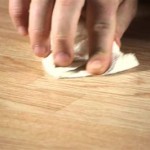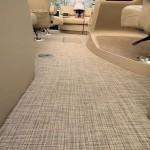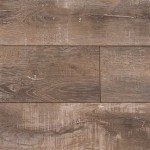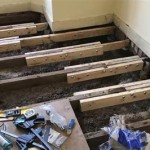The Hardest Plank: Exploring the Strength of Bamboo Flooring
In the realm of flooring, bamboo holds its own as a durable and sustainable option. However, the spectrum of bamboo flooring varies in terms of hardness, with some options surpassing others in their ability to withstand wear and tear. Here, we delve into the essential aspects that determine the hardest types of bamboo flooring, ensuring a robust and enduring choice for your home.
Species of Bamboo
The hardness of bamboo flooring predominantly depends on the species of bamboo used in its construction. Two key varieties stand out: Moso bamboo and Strand-woven bamboo. Moso bamboo, native to Central China, is exceptionally dense with a Janka hardness rating ranging from 1180 to 1380, making it comparable to hardwoods like oak and maple. Strand-woven bamboo, on the other hand, involves shredding bamboo into strands and recombining them to form a highly compressed flooring material with a Janka hardness of around 3000, rivaling the resilience of steel!
Construction Method
Beyond species, the construction method also plays a pivotal role in determining the hardness of bamboo flooring. Solid bamboo flooring, formed from a single piece of bamboo, showcases the natural grain and knots of the plant, resulting in a Janka hardness rating of around 1180 to 1380. However, engineered bamboo flooring offers an alternative by combining multiple layers of bamboo. This layered construction enhances stability and durability, yielding a Janka hardness of approximately 1450 to 2000, making it more resistant to dents and scratches.
Thickness of Planks
The thickness of bamboo planks directly impacts their strength and ability to withstand loads. Thicker planks, typically ranging from 12mm to 16mm, offer increased stiffness and support. They are ideal for high-traffic areas or rooms that require extra durability. Conversely, thinner planks, usually between 8mm and 10mm, may be more prone to bending or buckling under heavy pressure.
Hardness Rating
The ultimate measure of a flooring material's resistance to wear and tear is its Janka hardness rating. This rating, expressed in pounds of force (lbf), indicates the amount of force required to dent the material to half its depth. As mentioned earlier, the Janka hardness of bamboo flooring varies based on species, construction, and thickness. Look for flooring options with higher Janka hardness ratings for areas that experience heavy foot traffic or potential impacts.
Conclusion
Selecting the hardest type of bamboo flooring involves considering the species of bamboo, construction method, plank thickness, and Janka hardness rating. By understanding these essential aspects, you can make an informed choice that meets the specific needs of your home. Whether it's the exceptional durability of Strand-woven bamboo or the solid construction of Moso bamboo, the hardest bamboo flooring options guarantee a resilient and long-lasting floor that will withstand the test of time.

What Is The Hardest Type Of Bamboo Flooring Company

What Is The Hardest Type Of Bamboo Flooring Company

Bamboo Flooring Understanding The Options Buildinggreen

Hardest Bamboo Flooring Strand Woven 1840x96x20mm

What Is Strand Woven Bamboo Flooring The Company
Pros And Cons Hardwood Floors Vs Bamboo Flooring Builder

Your Guide To The Best Bamboo Flooring Floorings

Hardest Bamboo Flooring Strand Woven 1840x96x20mm

Tiger Strand Woven Bamboo Flooring Hardest Exotic

Your Guide To The Best Bamboo Flooring Floorings
Related Posts








